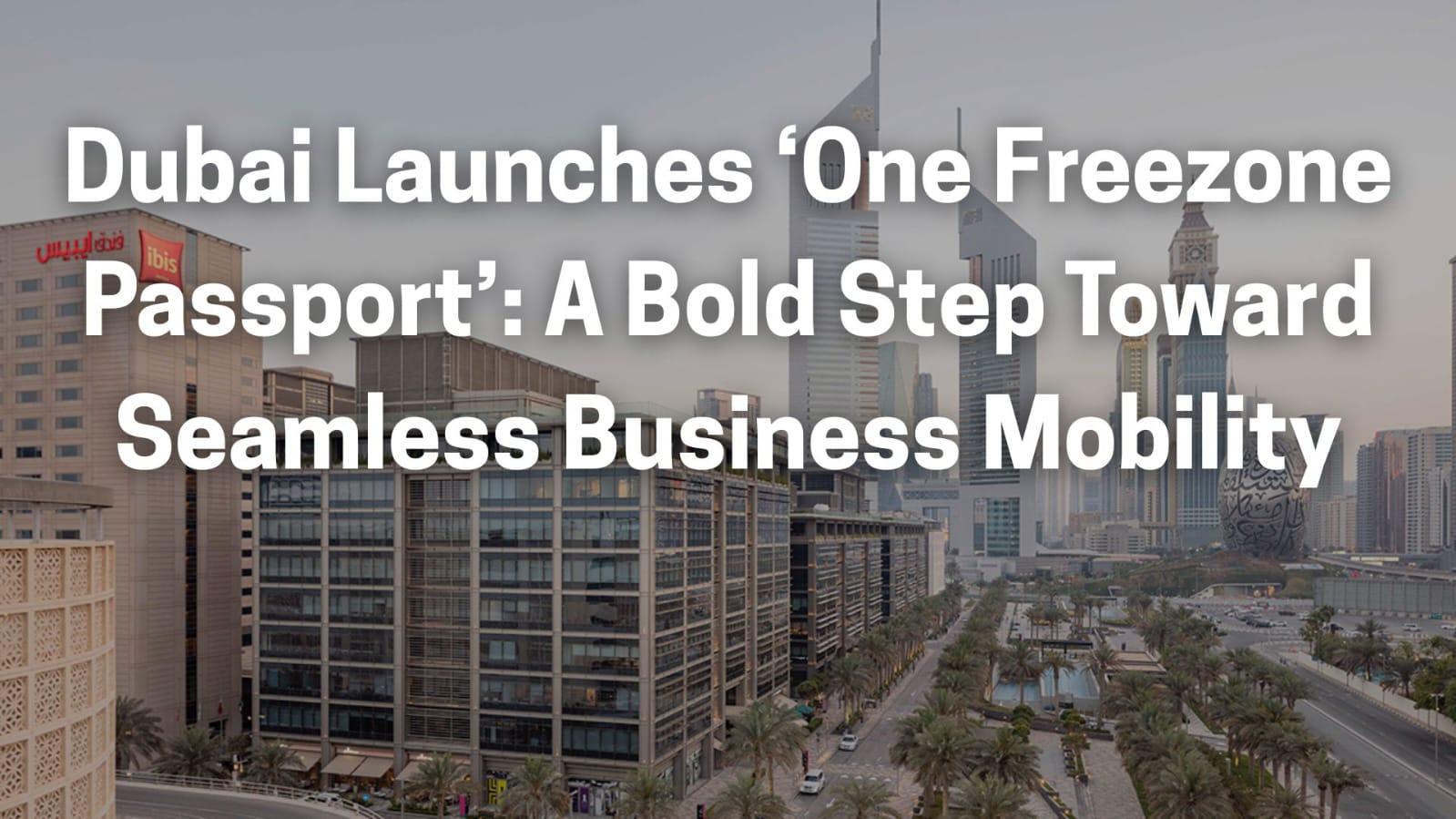John Smith
Alice. 'I've read that in.

Dubai just changed the game for global businesses. With the launch of the One Freezone Passport, companies can now operate across multiple free zones with a single license—saving time, money, and paperwork. And guess who jumped on board first? Louis Vuitton. This isn't just a policy update—it's a bold move toward the future of frictionless business.
Dubai has always been known for pushing the boundaries of innovation, especially when it comes to making business easier and more efficient. Now, the emirate has taken a major step forward with the launch of the ‘One Freezone Passport’ — a pioneering licensing system that allows companies to operate across multiple free zones in Dubai using just one license. The initiative, introduced by the Dubai Free Zones Council (DFZC), aims to simplify operations, accelerate expansion, and attract global investment to the city. What makes this announcement even more significant is that Louis Vuitton, the globally recognized luxury fashion brand, has become the first corporate entity to utilize the new system. Their participation marks a strong endorsement of Dubai’s evolving regulatory framework and highlights the potential of this initiative to transform how businesses expand and operate in the region.
Dubai is home to over 30 specialized free zones that cater to industries ranging from logistics and finance to media, technology, and healthcare. While these zones have played a critical role in Dubai’s economic success, they have traditionally required businesses to obtain separate licenses for each zone they wanted to operate in. This has often led to delays, added costs, and increased administrative work for companies seeking to grow across multiple sectors or locations. The One Freezone Passport eliminates these barriers. For the first time, businesses can now function across participating free zones under a single commercial license. This change simplifies expansion and allows companies to scale up operations quickly without the need for repeated paperwork or zone-specific approvals. It’s a model designed for modern, fast-moving enterprises—and it’s expected to significantly enhance the ease of doing business in the city.
Leading the way is Louis Vuitton, a name that needs no introduction in the world of luxury fashion. The company recently moved to take advantage of the One Freezone Passport, becoming the first multinational to be onboarded under the new system. According to the Dubai World Trade Centre Authority (DWTCA), Louis Vuitton was able to establish its corporate office at One Za’abeel while continuing its logistics operations at Jebel Ali Free Zone (JAFZA)—all under the same license. What makes this even more impressive is the speed with which the process was completed. From application to activation, the entire transition took just five working days. This swift turnaround not only showcases the efficiency of the new system but also reflects Dubai’s serious commitment to fostering a business-friendly environment.
The launch of the One Freezone Passport is closely tied to Dubai’s broader strategic goals. As part of the Dubai Economic Agenda D33, the city aims to double its economic output over the next decade and establish itself as one of the top global destinations for business and innovation. A key part of achieving that vision is reducing bureaucratic red tape and creating seamless pathways for companies to grow.
By consolidating the licensing process and allowing cross-zone operations, the new system offers a more integrated and investor-focused ecosystem. It addresses many of the pain points that businesses—especially international ones—have faced in the past and provides a strong incentive for new firms to enter the Dubai market. Moreover, this initiative is likely to complement other forward-thinking reforms that have been rolled out in recent years, such as dual licensing (which allows free zone companies to operate on Dubai’s mainland) and the Free Zone 10X initiative (which promotes innovation and agility within the free zone framework). Together, these programs reflect a shift toward flexibility, speed, and global competitiveness.
For companies looking to expand in Dubai, the One Freezone Passport offers a long list of advantages. It cuts down on administrative costs, accelerates the process of opening new offices, and allows for better resource allocation across different zones. This unified approach also enhances brand consistency and streamlines compliance, making it easier for businesses to maintain a cohesive corporate structure. However, businesses must still adhere to certain conditions. For example, their commercial activities must fall within the permitted scope of their original license. Additionally, while the licensing is unified, some regulatory procedures such as VAT compliance and inter-zone customs processes will still apply. These elements are expected to be further refined as the system evolves.
The bigger picture is clear: the One Freezone Passport is more than a procedural reform; it’s a paradigm shift in how Dubai approaches business regulation. It reflects a vision where the city’s many economic zones operate not as isolated silos but as parts of a connected, collaborative ecosystem. This unified model also opens the door for cross-industry collaboration, knowledge sharing, and more agile business strategies. A technology firm based in Dubai Internet City could potentially expand operations into Dubai South’s logistics hub without undergoing a full licensing process again. Similarly, a healthcare provider or fintech startup could explore partnerships across zones with ease, fostering innovation at every level.
As the One Freezone Passport rolls out more broadly, all eyes will be on Dubai to see how effectively the model scales and how other businesses, both large and small, respond to it. There is every reason to believe that many more global and regional firms will follow in Louis Vuitton’s footsteps. With its streamlined procedures, investor-centric approach, and alignment with Dubai’s growth vision, the One Freezone Passport could soon become a case study for other global cities looking to modernize their economic zones. In a world that values speed, simplicity, and flexibility, Dubai’s latest initiative proves once again why it remains one of the most attractive places on Earth to do business.
Your email address will not be published. Required fields are marked *